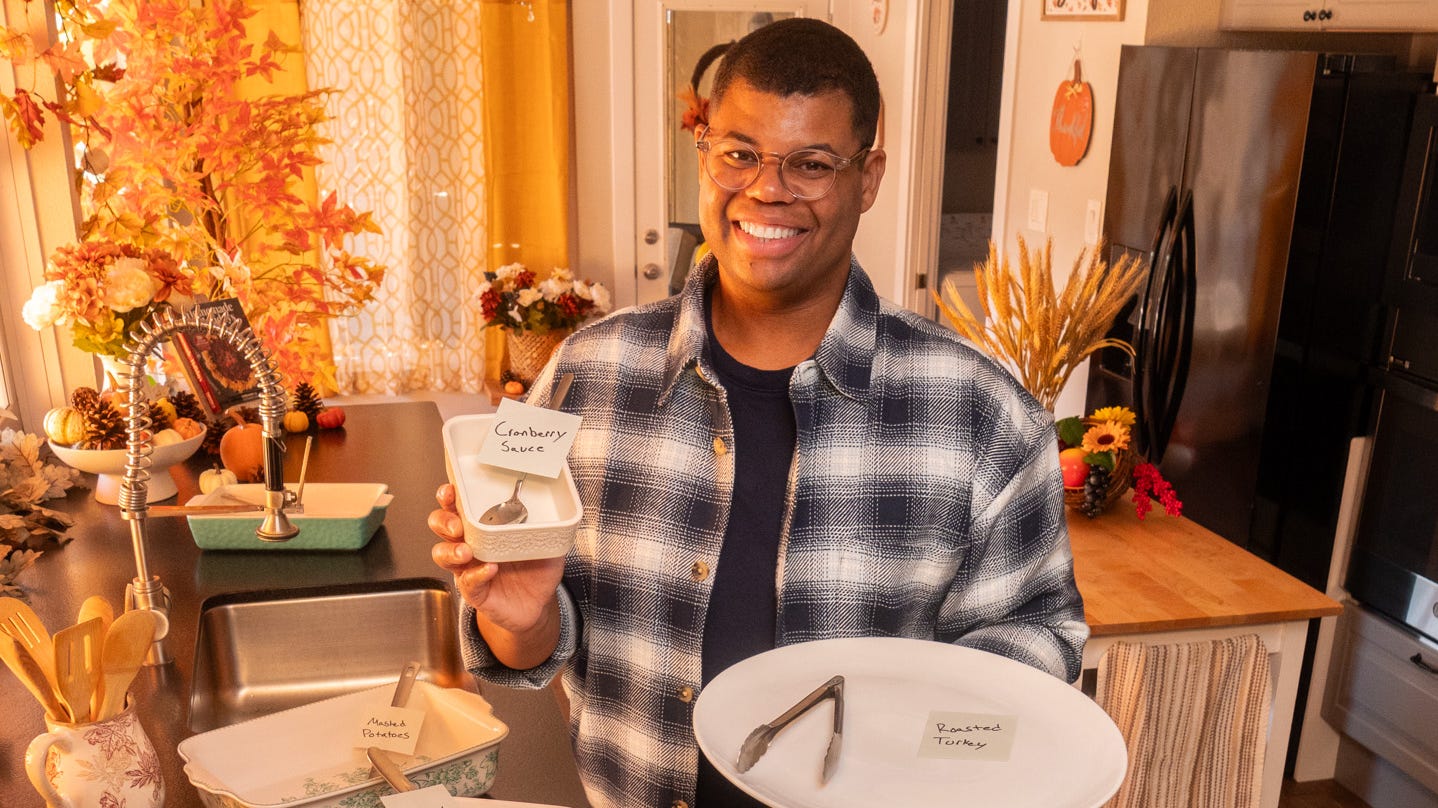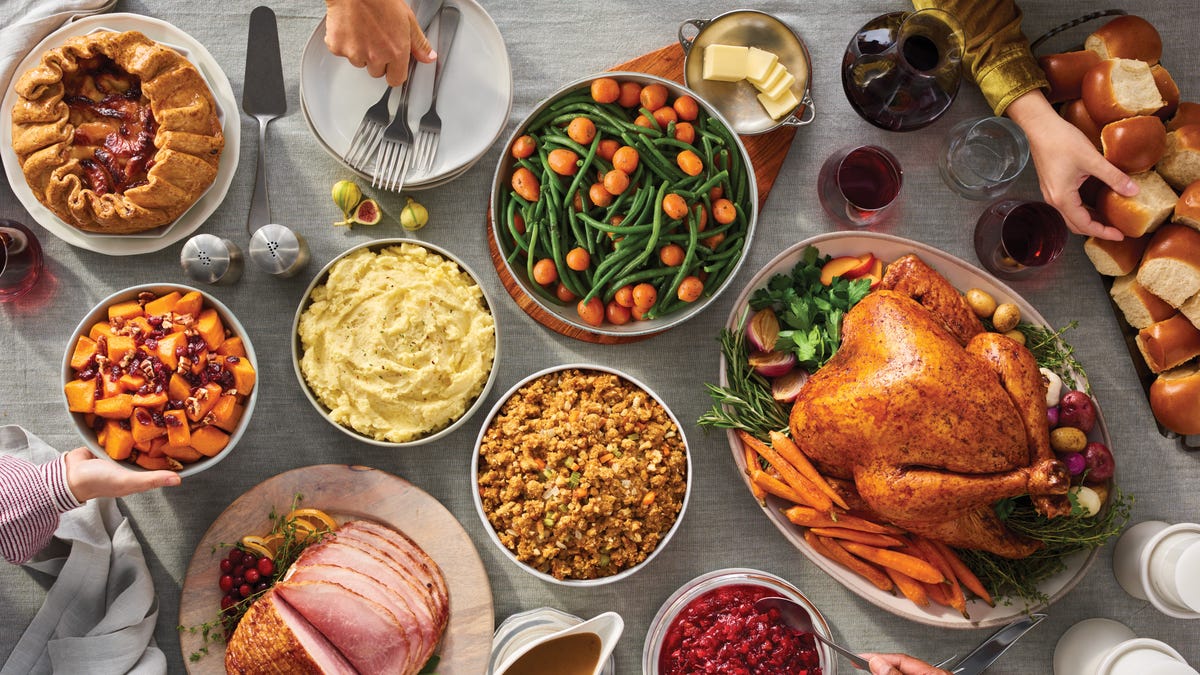
Holiday hosting made easy with this serving utensil checklist
Make sure you have everything you need for your holiday feast by matching utensils to dishes ahead of time.
Morgan Williams will fill her Thanksgiving plate this year with green bean casserole, her favorite dish – only to not eat it all.
That’s because Williams’ appetite is diminished and has changed drastically since she started a GLP-1 medication in April to manage her polycystic ovarian syndrome (PCOS) symptoms. She knows the casserole, for example, won’t be as enjoyable as it used to be.
“I don’t want to hurt anyone’s feelings,” Williams, 29, says. “So I will just grab the dish and not eat it. It will still be on my plate when I throw everything away.”
The Lincoln, Nebraska, mom has lost about 70 pounds on the drug, which works to prolong feelings of fullness to reduce food intake.
“I get full a lot faster, and big holiday portions feel kind of overwhelming now,” Williams says. “I used to go back for seconds, but now I’m satisfied after just a few bites, so the holiday season will definitely be different than past years.”
Williams feels more confident since starting her GLP-1. Her PCOS symptoms have subsided and her mood is improved. Her family knows about her weight loss and PCOS journey, and while supportive, some haven’t seen her since last Thanksgiving.
“There can still be a bit of a stigma around GLP-1 medications,” she says. “I’m proud of the progress I’ve made, but there’s definitely some anxiety that comes with knowing people might have opinions or make comments.”
Williams is among many Americans with similar dilemmas at Thanksgiving this year: Nearly 12% of Americans have used GLP-1s for weight loss, according to an August report by RAND. Use among men and women has more than doubled in the past year, as the drugs become a preferred method for weight loss.
As GLP-1s go mainstream, it’s more likely than not someone at your Thanksgiving table will look or eat differently, according to Sabina Hemmi, founder of GLP Winner, a GLP-1 watchdog. And it can be easy for us to feel upset or offended if someone is not eating the day’s special dishes.
“(Food) is it’s own cultural language, so when you have a medication that disrupts people’s relationship with food, it can feel kind of sad,” Hemmi says. “Thanksgiving can be stressful for anyone who has a family that encourages overeating or food as a way of showing love, adding to the pressure. If someone sits down with a smaller plate serving, it’s probably not helpful to make a comment.”
Rather, Hemmi says to treat this Thanksgiving as an opportunity to cherish new memories and provide supportive environments for those who have gone through big changes this year.
“Holidays are still special,” she says. “Those meals just might look a little different.”
How GLP-1s work and why it means a thinner Turkey day
GLP-1 agonists are injectable or pill-form drugs that work by mimicking the natural hormone that makes us feel full, delaying hunger. GLP-1s are also known by specific drug names like Ozempic, Wegovy and Mounjaro, to name a few. The drugs affect every person a little differently, Hemmi says, but in general, people can’t eat as much, even if an extra apple pie slice seems appealing.
“It can be difficult to overeat on these medications,” Hemmi says. “It’s far worse than other people overeating … If you overeat, it can cause discomfort and nausea.”
That lasting fullness means GLP-1 users might not get the same enjoyment out of Thanksgiving indulgence.
“It can influence the motivation or rewarding aspects of food,” says Steven Munger, who researches the neurobiology of smell and taste at the University of Virginia. “The best thing a host can do is just be aware and accommodating about the fact someone’s preferences and amounts may have changed.”
It’s also important to remember people take GLP-1s for a variety of chronic health issues besides weight loss.
“You don’t have access to someone’s medical history when you open their fridge,” Hemmi says. “I would not jump to judgment about someone being on the medication … it’s far more complicated.”
And don’t be surprised if someone raises a water for your Thanksgiving toast. As they do other foods, GLP-1s change how our bodies process alcohol, Hemmi says.
How to recreate savory moments in the Ozempic era
If your Thanksgiving palate has changed post-GLP-1, Munger suggests experimenting with alternatives and communicating needs to your hosts or guests ahead of time.
“You need to explore and listen to your body and rediscover what might be the types of foods that give you pleasure,” Munger says. “Don’t feel like you have to ignore the signals your body is telling you just because you’re in a holiday situation.”
And if someone arrives looking markedly thinner, Hemmi says Thanksgiving is not the venue to comment on their slim-down.
Whether you or a loved one is on a GLP-1, Munger says keep in mind something quintessential to the Thanksgiving tradition: Give each other grace.

